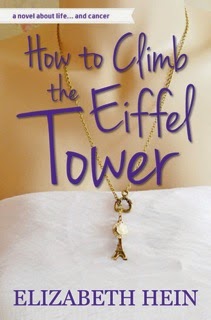Quick...before the regular post, are you participating in NaNoWriMo? I am! You can find me here.
As you probably learned in my post Unredeemable Characters and Unhappy Endings, I absolutely loved Gone Girl by Gillian Flynn. Like, I'm obsessed. As a reader, I was entertained. As a writer, I was blown away by the author's skill.
It was tough to whittle down the lessons learned to a manageable list, without giving too much away. Fair warning...if you haven't read the book yet, and don't want to know anything about the story, stop!
First, about Gone Girl:
On a warm summer morning in North Carthage, Missouri, it is Nick and Amy’s fifth wedding anniversary. Presents are being wrapped and reservations are being made when Nick Dunne’s clever and beautiful wife disappears from their rented McMansion on the Mississippi River. Husband-of-the-Year Nick Dunne isn’t doing himself any favors with cringe-worthy daydreams about the slope and shape of his wife’s head, but hearing from Amy through flashbacks in her diary reveal the perky perfectionist could have put anyone dangerously on edge. Under mounting pressure from the police and the media—as well as Amy’s fiercely doting parents—the town golden boy parades an endless series of lies, deceits, and inappropriate behavior. Nick is oddly evasive, and he’s definitely bitter—but is he really a killer? As the cops close in, every couple in town is soon wondering how well they know the one that they love. With his twin sister Margo at his side, Nick stands by his innocence. Trouble is, if Nick didn’t do it, where is that beautiful wife? And what was left in that silvery gift box hidden in the back of her bedroom closet?
What writing lessons did I learn from this book? Too many to list in this post, but here are my favorites:
- Get to know the missing person. How? In Gone Girl, we get to know Amy, the missing wife, through a series of journal entries. Early entries describe a wonderful romance, but soon the entries become dark and fearful. In my guest post on Traci Kenworth's blog, I listed ways for readers to care about an absent character.
- Unreliable narrator. Nick, the husband/suspect, confuses the reader. Is he concerned about his missing wife? Sometimes. And sometimes it seems his concern is just for show. When he's interrogated by the police he tells us, "It was my fifth lie to the police. I was just starting." After that, I kept wondering if he was lying or telling the truth. I tell ya, this book is filled with liars, cheaters, and psychos. I mean that as a compliment.
- Add personality to the prose. In Amy's diary, she tells how she used to write quizzes for women's magazines. When at a crossroad in her life, she'd write a quiz about it in her diary with multiple choice answers. It was a cute way to get to know the character better.
- If there's a gun on the wall, use it. Remember that saying? If there's a gun on the wall, the writer had better use it? I can't remember who said it. Anyway, there was a couple of clues I picked up on that didn't go further. Nick and his sister Margo are twins. They'd even experienced telepathy. I expected the author to explore that in the story. If it was explored, it was done in a way that I didn't catch. It seemed like a missed opportunity.
- List of suspects. Nick soon becomes the main suspect in Amy's disappearance. He does show signs of innocence, though, like occasional shock and worry. But there are also other characters who could be involved. There's a roving band of homeless men in the town, and there are old flames and stalkers who might have motive to harm Amy.
- Unexpected character backstory. Most protagonists come from messed up families. After all, how interesting are characters who have wonderful lives and come from wonderful families? Amy's parents seem to have the perfect marriage and a charmed life. This made Amy uncomfortable about being single at 31. This perfect marriage also played into the story in unexpected ways. It went against type and also caused problems.
- Treasure hunt for clues. In this story, there was literally a treasure hunt. Amy's anniversary tradition was to send Nick on a treasure hunt, with gifts planted along the trail. She goes missing on her anniversary, and yep, a treasure hunt had already been planned. Cops find clue #1 and gift #1 before Nick does. The gift has been carefully opened. This was a clever way to weave mystery and suspense into the story.
Have you read Gone Girl? Seen the movie? What's your opinion? What do you think of these writing lessons? Are you participating in NaNo? If so, good luck!




